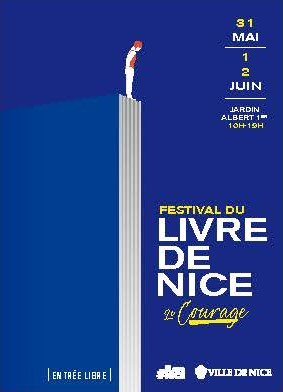The Nice Book Festival, for its 28th edition in 2024, tackles an essential question. Can courage be considered a literary virtue? In addressing this question, the organizers have chosen to highlight the struggle of writers. Who, through their words and works, have managed to defy adversity, brave censorship, and face dangers.
At the heart of this reflection, Boualem Sansal stands out naturally. A novelist, short story writer, and essayist, he is the author of twenty books. They all share a common strength in denunciation and firmness in the face of oppression. Originally from Algeria, Sansal has faced censorship and persecution by the authorities since his literary beginnings. His first novel, “The Oath of the Barbarians,” portrays without concession the dark years of the Algerian civil war, between Islamist terror and political corruption.
Despite threats and pressure, Sansal has always refused to remain silent. Even after being expelled from his high-ranking position for his stances, he chose to remain in Algeria. Thus, he continues his fight against obscurantism and intolerance. His latest work, “Live. The Countdown,” challenges us with the urgency to resist the rise of religious extremism.
Tribute to a Symbol
By appointing him as president of the Nice Book Festival, the organizers wanted to pay tribute to this committed writer. A living symbol of literary courage. From May 31 to June 2, the Albert 1st Garden will host this large-scale event. Placed under the artistic direction of Franz-Olivier Giesbert.
This annual event, which attracts over 200 writers from all walks of life, promises to be rich in encounters, debates, and literary discoveries. The inauguration, scheduled for May 31, will be marked by the presence of Christian Estrosi, Mayor of Nice. This will emphasize the importance of freedom of expression in our society.
In this period where courage seems more necessary than ever, the Nice Book Festival presents itself as a bastion of resistance and freedom. Boualem Sansal embodies this conviction that words can be weapons. And that literature can be a rampart against obscurantism.


